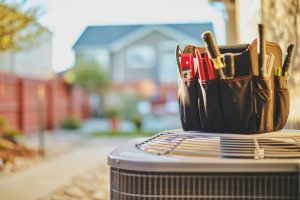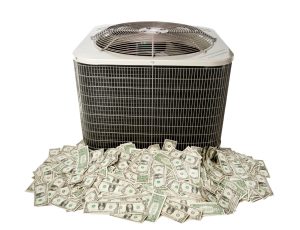Choosing the right air conditioning system for your Florida home is essential for staying cool and comfortable in our hot, humid climate. With so many options available, many homeowners find themselves asking, “Which air conditioner is right for my home in Brandon? At Bayonet Plumbing, Heating & Air Conditioning, we understand how important it is to have a properly sized and professionally installed system that meets the specific cooling demands of your home. Let’s break down your options and help you find the perfect cooling solution for your Florida home.
Bayonet Plumbing, Heating & Air Conditioning Blog: Archive for the ‘Air Conditioning’ Category
Benefits of Financing a New AC System for Florida Homeowners
Monday, December 16th, 2024When it comes to cooling your Florida home, you want a system that keeps you comfortable, operates efficiently, and doesn’t cost a fortune to run. Two of the most popular options are heat pumps and central air conditioners, leaving homeowners to wonder, “Which air conditioner is right for my home in Fruit Cove? While both systems cool your home, they differ in how they work, their energy efficiency, and the benefits they offer. To make the best choice for your home, it’s essential to understand these differences and why professional sizing and installation are crucial for optimal performance.
Don’t Wait for Your AC To Breakdown: Explore AC Financing Options
Monday, December 16th, 2024If you’re a homeowner in Florida, you know how crucial it is to have a reliable air conditioning system. The intense heat and relentless humidity demand a cooling system that can keep your home comfortable year-round. However, upgrading to a new AC system can come with a hefty price tag. Fortunately, Bayonet Plumbing, Heating & Air Conditioning offers flexible financing options that make it easier for homeowners to afford this essential home upgrade. By spreading payments out over time, you can enjoy better cooling, improved energy efficiency, and lower energy bills—without the stress of a large upfront expense. Trust our team when it’s time to ask yourself, “Which air conditioner is right for my home in Gateway?”
Is It Better to Buy an AC System or Wait for Refrigerant Upgrades?
Monday, October 28th, 2024At Bayonet Plumbing, Heating & Air Conditioning, we prioritize informing our customers about key developments in the HVAC industry that will directly affect you–and your AC costs. If you need a new air conditioning system, you might have heard about recent refrigerant changes that are expected to significantly raise equipment costs.
Due to new EPA regulations, R-410A refrigerant is being phased out and replaced with a more eco-friendly alternative that reduces the likelihood of refrigerant leaks. As a result, the prices of central AC units, heat pumps, and mini splits are expected to increase. Here’s what you need to know to decide whether to upgrade your current system now or wait on HVAC installation in Lakeland Highlands.
HVAC Dilemma: Should You Buy Now or Wait for the Latest Refrigerant?
Monday, October 28th, 2024At Bayonet Plumbing, Heating & Air Conditioning, we keep up with the latest advancements in the HVAC industry and share key updates with our customers. One significant upcoming change involves the phase-out of the refrigerant R-410A, which will impact the cost of cooling systems for homeowners. Prices for central air conditioners, mini splits, and heat pumps are expected to increase significantly. If your HVAC system is outdated, it may be wise to upgrade now to save on a new system before these changes take effect. Here’s what you should know to make an informed decision about HVAC installation in Lakewood Ranch.
Buy New AC Now or Wait? The 2025 Refrigerant Changes to Know About
Monday, October 28th, 2024At Bayonet Plumbing, Heating & Air Conditioning, we believe in informing our customers about big changes in the HVAC industry that will directly affect them–and their wallets. Recently, new regulations have been introduced for residential and commercial AC systems that are anticipated to raise the costs of HVAC systems in 2025 with prices expected to steadily increase as the market adjusts.
This means that homeowners who are on a budget and who have an outdated system might want to consider purchasing a new system now rather than waiting if cost is the main objective. Homeowners who want the newest, eco-friendly AC system might want to wait. Let’s go over what has prompted the refrigerant phase-out and what homeowners need to know about how these changes will affect HVAC installation in Sarasota.
2025 Refrigerant Changes Florida Homeowners Need to Know About
Monday, October 28th, 2024At Bayonet Plumbing, Heating & Air Conditioning, we prioritize staying abreast of changes in the HVAC industry and passing along important information that we feel is relevant to Florida homeowners. One such major change is just around the corner and it involves refrigerants, the essential substance in air conditioners that keeps your home cool during our extended cooling season.
Specifically, the R-410A refrigerant is being phased out due to new regulations. This phase-out is anticipated to raise costs for HVAC systems that rely on refrigerants industry-wide. If you know you are due for an HVAC installation in The Villages, you may want to upgrade sooner rather than later. Let’s explain your options.
2025 Refrigerant Changes for AC: What Tampa Homeowners Need to Know
Monday, October 28th, 2024At Bayonet Plumbing, Heating & Air Conditioning, we believe in informing our customers about upcoming HVAC industry changes that will directly impact the cost of cooling equipment. A major change on the horizon involves refrigerants which central air conditioners, mini splits, and heat pumps all depend on for cooling air.
Specifically, the widely used R-410A refrigerant is being phased out due to new regulations. This phase-out is anticipated to raise costs for HVAC systems that rely on refrigerants industry-wide. Here’s what you should know if you are due for an HVAC installation in Tampa.
How New Refrigerant Laws Will Affect AC Prices
Monday, October 28th, 2024At Bayonet Plumbing, Heating & Air Conditioning, we believe in educating our customers about important changes in the HVAC industry that will directly affect them–and their wallets. If you’re in the market for a new AC system, you may have heard about the changes affecting refrigerants, the essential component in all cooling systems.
Because of new EPA regulations, the refrigerant R-410A is being phased out and replaced with a more environmentally friendly substitute that is less prone to refrigerant leaks. This means that the cost of central air conditioners, heat pumps, and mini split systems is expected to increase sharply in the new year. Here’s the info you need to make an informed decision on whether you should schedule HVAC installation in Cape Coral now or wait.
Refrigerant Laws & Timing Your AC Purchase: Buy Now or Wait?
Monday, October 28th, 2024At Bayonet Plumbing, Heating & Air Conditioning, we stay abreast of changes in the HVAC industry and pass down the most important changes to our customers. A major, upcoming change concerning the phase-out of the refrigerant R-410A will directly affect the cost of cooling equipment for homeowners. The cost of central air conditioners, mini splits, and heat pumps is anticipated to rise significantly in price. If you own an outdated HVAC system, you may want to consider if you should schedule HVAC installation in Winter Garden before these changes take effect to save a significant amount on a new system. Here’s what you should know.










